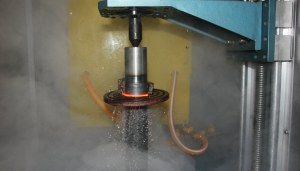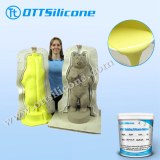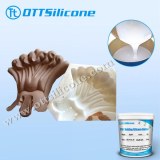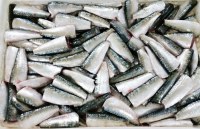Induction Hardening
The induction hardening process is a very important way in the manufacturing process of heat treatment of mechanical parts. In order to improve the hardness of metal's surface, not only should the surface layer depth of the workpiece reach the industrial design standard, but the heat treatment production plants are also needed to introduce the hardening process in the production. Functioning as an effective tool to implement the induction hardening process of steel, the induction hardening machine occupies an irreplaceable position in many heating methods, especially in the control of layer depth and temperature control. As a mature induction hardening machine manufacturer, JKZ sells 1-10KHZ medium frequency induction furnaces, 15-30KHZ ultrasonic frequency induction heaters, 30-60KHZ high-frequency induction heating machines, and 50-120KHZ super high-frequency small induction heating machines of high quality. These induction hardening machines hold the power range from 7.5KW to 600KW, which can process workpieces with a diameter up to 2000mm and hardening depth from 1 to 20mm. Moreover, capable of working together with CNC/PLC hardening machine scanner system, JKZ's Induction heating equipment can also accurately control the induction heating coil moving speed, workpiece rotation speed, power output percentage, layer depth, and quenching liquid spray time. Thus, if you are still looking for a tool to conduct effective application of induction surface hardening, our industrial heating unit can then perfectly meet all your needs for the hardening and heating processes.
Induction Hardening VS Case Hardening
Comparing the two methods of quenching steel workpieces, the first significant difference is part handling. Surface hardening can process a large number of workpieces at the same time, while induction hardening focuses on a single workpiece. Through induction hardening, the parts are quenched one by one.
Case hardening relies on parts logistics to transport parts between the production line and hardening. Induction hardening can be directly integrated into the production line as part of the cycle with a suitable hardening machine.
Case hardening in detail
As mentioned above, surface hardening is carried out in batches. As with induction hardening, the goal is to harden the outer layer of the workpiece.
In the case of quenching, the workpiece is hardened by carburizing. The steel is heated above 880°C to become austenite. The coal is then transferred from the CO emission medium to the part through the surface of the part. Diffusion causes the edges of the workpiece to receive more carbon, while the carbon density in the center remains the same.
There are two ways to influence the depth of hardening in surface hardening: one is to manipulate the heating of the workpiece, for example, by using a special paste to prevent certain places from being heated. The other is by influencing the quenching process, for example by immersing only certain parts of the workpiece.
Using these two methods, the results are not particularly accurate, and can only be reproduced within a relatively wide tolerance range. This is very different from induction hardening.
Induction hardening in detail
As mentioned above, each part is individually quenched using induction hardening technology. Each part is heat treated, quenched and annealed separately. In addition to being integrated into the production line, the great advantage of induction hardening is the precise control and reproducibility of the quenching results. In order to achieve this, the entire hardening process from the inductor and the applied energy and frequency to quenching and annealing has been specifically adjusted for the relevant workpiece. Even for workpieces with complex geometries, this can produce excellent quenching results.
Which Hardening Method is Better?
Which hardening process is suitable for the application depends on many factors. Both case hardening and induction hardening methods have their own advantages and disadvantages. However, for the mass production of medium or high-volume parts, induction hardening provides a series of benefits:
Using a suitable hardening machine, induction hardening can be fully integrated into the cycle of the production line and automated.
Especially induction hardening, the result is repeatable, which helps to maintain high quality in production. This greatly reduces the unit cost
As a professional induction heater factory, JKZ has high-quality induction heating inverter for sale. Welcome to contact us if needed.
Contact : Jun Yang Jun, (0086) 28 84211110
Good deal: buying from seller
We invite you to read our terms of use. You can also visit our FAQ section and see our information section on the risks associated with counterfeiting.
|
This page is about importers and exporters of Induction Hardening Search in a category : B2B Services Search in a category : induction, hardening |
Wednesday, April 08, 2015
Quantity : 100 grams - Price : 7USD
RTV 2 Silicone rubber applications: 1. RTV 2 Silicone rubber can used for artificial limbs products such as artificial fossils Factory, Europe component factory, simulation landscapes, animals and plants scul pture, sandstone crafts and so on. RTV 2 Silicone rubber features: RTV...
Guangzhou OTT New Materials Co.,Ltd.
- 510800 - Guangzhou
- 86 020 86819712
Wednesday, April 08, 2015
Quantity : 100 grams - Price : 7USD
Mold Making Silicone Rubber Applications: 1. Mold making silicone rubber can used for poly resin crafts, PU crafts, PU resin crafts ,gypsum cr afts ,unsaturated resin crafts, lighting and candles crafts ,plastic toy , stationery gifts crafts i ndustry, 2. Mold making silicone rubber...
Guangzhou OTT New Materials Co.,Ltd.
- 510800 - Guangzhou
- 86 020 86819712
Tuesday, May 17, 2016
We are a modern pelagic plant with moden equipment HACCP certified (ISO 9001 in process). We belong to a group owning more than 20 fishing boats in southern Morocco with a completly integrated logistic chain and an ice factory. We have CONSTANT and REGULAR supply with priority on...
KOMOFISH
- 70040 - Laayoune
- 00212661964456









